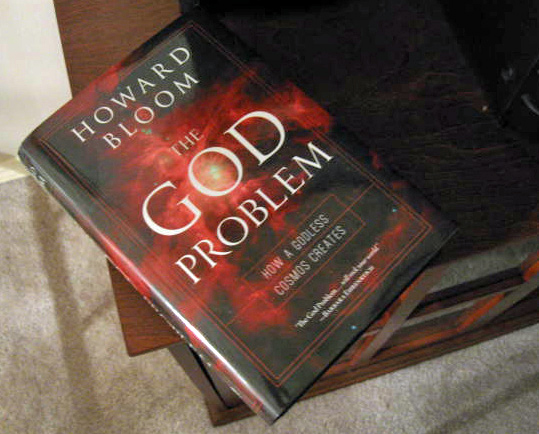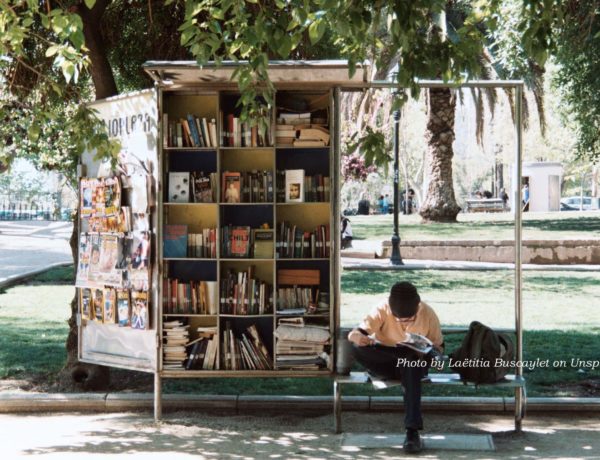Originally published November 7, 2014
It was supposed to be a simple book review. Read the book, jot a few notes, and off we go. Of course the book was 563 pages long, but nobody was going to stick around for the encyclopedic version, after all, they could just buy the book. In addition to the text there were 142 pages of notes and index. How does one make that interesting? Well, something happened on the way to solving The God Problem (by Howard Bloom). But, then, that’s what reading is all about.
Book stores are magical places, at least in my opinion. Browsing through the aisles of a well-stocked bookstore, new or used, small or large, is like shopping for the door into summer (bows to Heinlein). You are surrounded by worlds created by the human mind, fantasy, perceptions of reality, scary, comforting, educational, or just plain fun. It is an antechamber to a whole collection of universes real, and imagined. It is my favorite indoor place.
I rarely approach a trip to a real book store with something specific in mind. Shopping for particular titles is something anyone can do with a computer now days; but to browse, to wander, to explore – that must occur with book in hand. And this was such a book. How can one resist such a title? I surely couldn’t. Knowing that the point of view was going to be a lack of faith, I decided to take the plunge. And I found magic. Magic that made sense to me, whether or not I chose to be a person of faith. This then, is my adventure into a magical place, a place where the cosmos creates, invents, grows, becomes.
Since I was quite young I have had the Second Law of Thermodynamics pounded into my head. This is used to explain that evolution can’t happen because things become less organized through the force of entropy. Therefore there has to be a creating hand. Well, I had a problem with that, not for the reason you might think, but because I didn’t see a common slide “downhill” or to “disorganization.” I saw purpose. I saw renewal, I saw great spirally galaxies, star factories, things that grew and reached for the light.
Oh, but wait, you say, dust to dust, erosion, volcanoes, hurricanes, novae. What do you do with that? I see it become new life, feed new plants, replenish failing minerals, creating the elements required for life itself. Out of catastrophe I saw the potential for greater things. I found a kindred spirit. He led me to the heart of the birth of the cosmos and introduced the simplest rules. He redefined the idea of a wave, and I traveled far, far away.
A wave is not really a “thing.” A wave is something that is made up of the “things” that are present at that point, then it moves on. Always made up of different molecules, different floating bits, but still the wave traveling at whatever speed across vast distances.
I am a wave, a wave made up of the atoms, cells and molecules that make up my body today. Fed by what I eat, mentally fed by what I read and learn, discard or add to my own view of the cosmos around us. I exist as a changing flow of thoughts, atoms, cells, bits and pieces. How easy, to be a wave and allow the cosmos to guide me on the path.
If you want to learn why A does not equal A and why 1 plus 1 may not equal 2 – come play, we’ll be waiting.



2 Comments
admin
October 18, 2020 at 3:03 pmAdded by Peter Wells aka Countingducks, November 7, 2014
Very technical post with an emotional undercurrent. As for bookshops, they are not common here in the UK, but I entirely agree to them being a beautiful place where one can browse and have your interests piqued by titles you had never heard of before you entered the shop. That is the great difference to online shopping where serendipity has much less influence on behaviour sadly
admin
October 18, 2020 at 3:04 pmAdded by Howard Bloom, November 7, 2014
thanks, victoria. wonderful review wonderfully written.